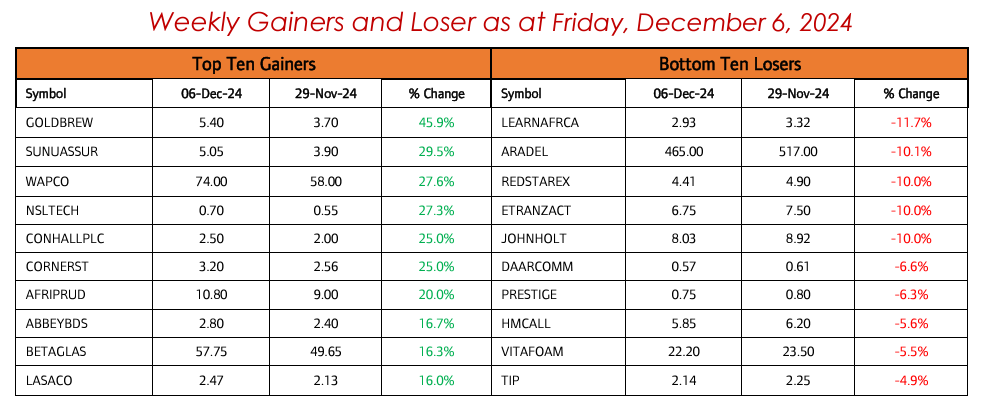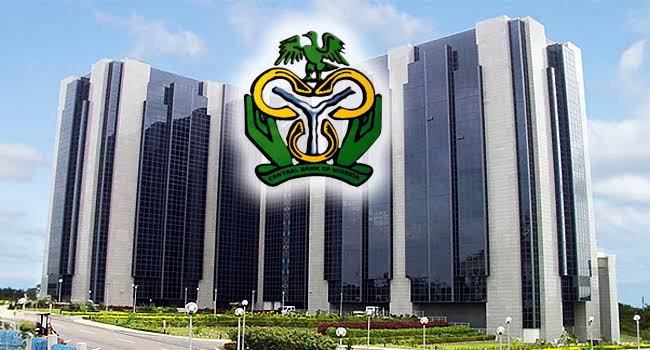This report offers an overview of key economic indicators and developments in some countries, such as Japan and Sub-Saharan Africa, as of November 2024. It analyzes the implications of rising inflation rates in Ghana, the recovery of Nigeria’s foreign exchange reserves, and the performance of the Nigerian stock market amidst ongoing challenges. In this report, we tried to provide some insights into Nigeria’s economy and potential future trajectories for investment and growth.
Japan’s Composite PMI, reported by au Jibun Bank, rose to 50.10 in November 2024 from 49.60 in October, signalling a stabilization in private sector activity. This increase was driven by a rise in the services PMI to 50.50, despite a slight decline in manufacturing PMI to 49.00. While demand and employment showed modest improvement, concerns about persistent inflation and subdued demand remain.
In Sub-Saharan Africa, Ghana’s inflation rate climbed to 23.00% YoY in November 2024, up from 22.10% in October. This was mainly due to a surge in the food index to 25.90% amid reduced food supply and pre-election spending. The election holds Saturday, December 7. The non-food index eased to 20.70%. This trend may prompt the Bank of Ghana to be cautious in its upcoming meeting.
Following the program’s third review, the International Monetary Fund (IMF) approved a $360.00 million disbursement to Ghana under its $3.00 billion Extended Credit Facility. This approval will enhance investor confidence and support fiscal discipline and debt restructuring. However, risks persist concerning the election outcomes and potential policy shifts.
Nigerian Economy
The National Pension Commission (PenCom) has lifted its suspension on investments by Licensed Pension Fund Administrators (LPFAs) in commercial papers issued by non-bank capital market operators. This change follows the Securities and Exchange Commission‘s (SEC) release of new regulatory guidelines for commercial paper issuance. It hopes to enhance capital-raising activities for corporate entities while protecting pension fund investments.
Nigeria recently returned to the international debt market, issuing dual-tranche Eurobonds totalling $2.2 billion, with a strong demand that saw orders exceed $9 billion. This positive response reflects investor confidence in Nigerian assets. It could help boost foreign inflows and strengthen reserves, though it may pressure public finances due to rising debt obligations.
The Federal Government is also implementing the Electronic Money Transfer Levy (EMTL) starting December 1, 2024, imposing a ₦50 charge on electronic transfers above ₦10,000. This levy enhances revenue collection but could discourage transaction volumes, particularly among price-sensitive users.
Lastly, the government plans to launch the National Youth Unemployment Benefits Scheme (NYUBS) to support unemployed and underemployed youth. While it could stimulate consumer spending and aid small businesses, careful management is crucial to avoid ineffective expenditures.
Foreign Exchange Market
The Central Bank of Nigeria (CBN) reports that the country’s foreign exchange reserves have significantly improved. By November 2024, they had increased by 21.90% year-on-year, rising from $33 billion to $40.23 billion. This boost of $7.23 billion is the highest level since February 2022, driven by strong foreign capital inflows linked to the CBN’s tight monetary policy.
Throughout 2024, reserves increased by 22.24%, supported by rising oil prices and CBN efforts to stabilize the forex market. Favourable conditions for Bonny Light crude, consistently exceeding $80 per barrel, contributed to these gains alongside rising foreign portfolio investments.
However, the forex market faced challenges as high demand for dollars from various sectors pressured reserves. Global oil price volatility and domestic issues like crude oil theft impacted export revenues. The removal of petrol subsidies initially brought inflation, curtailing foreign capital inflows. At the same time, the Naira’s depreciation prompted CBN interventions to address critical import needs. By November 2024, reserves covered 11.8 months of merchandise imports, reflecting Nigeria’s resilience amid ongoing challenges.
Stock Market
The Nigerian stock market ended the week positively, with the All-Share Index (ASI) rising 0.72% to close at 98,210.75 points, reflecting increased investor confidence. Market capitalization also increased by 0.72% to ₦59.53 trillion, contributing to a year-to-date return of 31.3%.
The market breadth was positive at 1.70x, with 51 gainers surpassing 30 losers. Trading volume surged by 21.9% to 3.89 billion units, and the value traded jumped 59.9% to ₦87.75 billion. However, total deals declined slightly by 2.8% to 43,867.
All major sectors posted gains, led by the NGX Insurance index, which rose 8.45%. Notable gainers included Golden Guinea Breweries (up 46%) and SUNU Assurance (up 30%), while Learn Africa was the top laggard, declining by 12%.

The local bourse closed the week with the NGXASI dropping 0.34% WoW to 97,624.82pts, while YtD returns stand at 30.40%. In contrast, the Nigerian equities market experienced a bullish trend this week, rising 0.72% WoW to 98,328.80pts and bringing YtD performance to +31.34%. Key drivers included strong investor interest in WAPCO (+27.59% WoW) and SEPLAT (+7.55% WoW).
Sector performance was generally positive, as we said earlier, and it was led by NGXINS (+10.50% WoW) and NGXOILGAS (+4.84% WoW). Top gainers included GOLDBREW (+45.95% WoW) and SUNUASSUR (+29.49% WoW), while LEARNAFRICA (-11.75% WoW) and ARADEL (-10.06% WoW) topped the losers’ list. Trading volume and value increased by 31.36% and 38.78%, totalling 3.12 billion and ₦69.54 billion, respectively.
Money Market
The CBN issued treasury bills worth ₦583.26 billion, maintaining rates for the 91-day and 182-day instruments at 18.00% and 18.50%, while the 364-day yield fell to 22.93%. The subscription-to-offer ratio averaged 4.37x. However, the fixed-income secondary market was bearish, with yields rising to 25.38% for treasury bills and 19.49% for bonds.
In the Eurobond market, yields dropped to 9.18%, reflecting improved investor sentiment. Forecautious trading is expected as market participants monitor global economic conditions and potential shifts in U.S. Treasury yields.
Conclusions
Due to economic uncertainties and structural inefficiencies, foreign direct investment and portfolio inflows have declined. In response, the government has launched initiatives like issuing dollar-denominated bonds to attract foreign investment, achieving limited success. Cautious optimism is emerging as recovering oil prices and fiscal reforms improve investor sentiment. However, maintaining this momentum requires more efforts to diversify exports and enhance oil production efficiency.
Nigeria’s foreign exchange reserves are expected to rise, driven by higher foreign portfolio inflows supported by the CBN’s hawkish monetary policy and favourable interest rate differentials. This environment may stabilize reserves, but long-term resilience hinges on comprehensive economic reforms.
Bullish momentum is anticipated in the stock market in the coming week as investor interest remains in fundamentally sound stocks. Technically, the NGX is in a markup phase, with a mix of strengths and weaknesses evident in the market. We advise investors to focus on stocks with strong fundamentals.
Comment, Like 👍, share this article, and Follow us on our social media handles.







